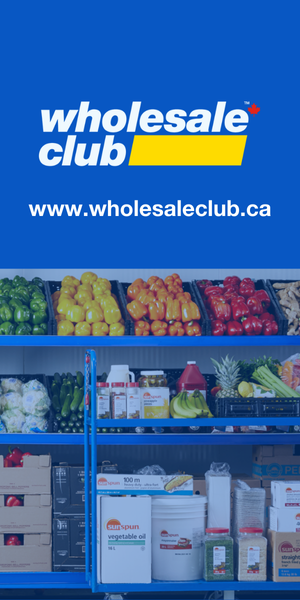We Are Open, But Will Our Customers Return?
Since the start of the pandemic, multiple lockdowns have forced restaurants to try to maintain their businesses on takeout, drive-thru or delivery services while keeping up-to-date on changing public health guidelines. As restrictions ease, consumer confidence is still on the mend. While Restaurants Canada’s spring #DineInDoOver campaign focused on bringing people together to celebrate missed moments at their favourite restaurant, making sure customers feel safe and welcome is top of mind for many operators.
From coast-to-coast, restaurant owners are looking at the return to in-person dining as an opportunity to rethink customer service to include safety precautions to regain consumer confidence.
David Cooper, owner of Finn’s in Victoria B.C., says that customer service opens the door for great business. Restaurants can improve their customer service by focusing on the basics:
- Providing top-notch customer service
- Sharing positive reviews and testimonials
- Being transparent
- Being reachable
- Prioritizing safety, hygiene and quality as part of the restaurant’s vision and mission statement
“It was genuinely quite touching just how far out of the way customers would go to say how they felt for us and how difficult things must be for us.” – David Cooper, Owner, Finn’s, Victoria, B.C.
Cooper says that customers have been extraordinarily gracious through these tough times. Consumers in Victoria have gone out of their way to be considerate and gracious and kind and concerned. “It was genuinely quite touching just how far out of the way customers would go to say how they felt for us and how difficult things must be for us. They were cooperating and understanding with things like showing us their vaccine passport. Just people going above and beyond to just try and make sure that they make things as easy for us as possible.”
Amid the pandemic, it was unclear what the future of dining would look like, which is why transparency with consumers was so important for the restaurant business. Customers are more likely to return and support businesses when owners are transparent about the changes that are happening.
In order to stay afloat, many restaurants started implementing non-refundable reservation fees, increasing prices or removing menu items entirely in order to continue to turn a profit during the pandemic. Guy Pratt, owner of Studio East in Halifax, N.S., says that in order to keep his business standing he had to increase prices, as the cost of food and resources steadily increases. However, these changes have not affected the consumer base at Studio East because Pratt has been up front and direct about the changes.
“We just added a few extra cents to a few items. The value is still there, but I think most people understand that the price of food is going up for sure. So, we did increase some of our menu items on January 1,” Pratt says.
Cooper says that the pandemic could completely change consumer/guest relationships as well as what’s on the menu. His team opted to remove certain menu items that were no longer profitable instead of increasing prices. “We have removed items from the menu because the spikes of inflation have been so sharp that it would be a shock to our customers, and customers took that very well. It has really made a difference for us because just communicating to customers openly about the market dynamics but also committing to them that we wouldn’t change our quality standards and our value standards made them trust us. It’s helped us keep a good relationship with our customers,” Cooper says.

Listening to feedback has also been an essential part of maintaining consumer confidence. Customers want to feel like their requests are being heard and understood, especially if they will be returning to an establishment. In restaurants like Famous Last Words, in Toronto, Ont., where their signature book-style menu is part of the customer experience, removing the physical menu due to COVID-19 restrictions has affected business and customer experiences. Many people have been disappointed as their physical menu was phased out during the thick of the pandemic restrictions. With restrictions now lifted, they can bring back the physical menu and restore customer experiences.
“For us, I think it’ll be important because it’s such a part of the experience to have that physical menu. And I think in a lot of fine dining and more upscale places, there’s an expectation that you’re going to get something that is nice cardstock and quality on the table. It’s a major part of the experience,” says Marlene Thorne, owner of Famous Last Words.
As restrictions lift across Canada, the way restaurants operate will be forever changed. Staying true to the experience and needs of the customer is how restaurants will maintain and increase their business.
Cooper says, “I would say that if you were a successful restaurant before the pandemic, I would my advice would take a moment and think about what made you successful. Think about what was successful about you’re offering to your customers and go back to those values go back to those standards. Don’t get swept away and feeling like you need to change everything.”










As a leading edge technology company in Ontario we are doing our part to help the restaurant industry with UVC LED technology To eradicate Coronavirus in the air duct ventilation systems of any building. We would invite u to reach out to us for more info and get the word out so we can help this industry further. This technology also eradicates the Flu/Cold viruses all Bacterias and Mold instantly keeping all staff bd customers safe. Regards Dave